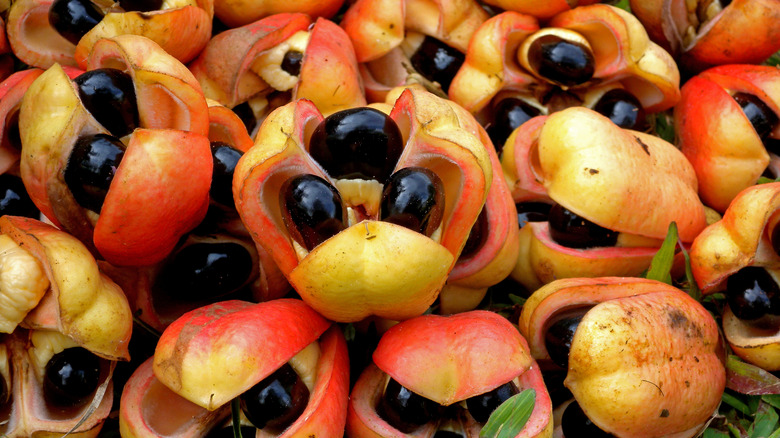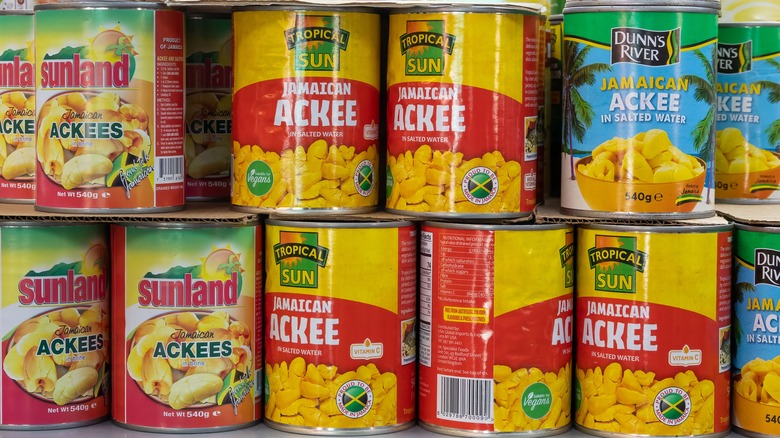Is It Dangerous To Eat Canned Ackee?
Ackee, like the tomato, is technically a fruit, though it's eaten like a vegetable. Britannica explains that the fruit grows on the evergreen tree Blighia sapida, which is native to West Africa. Ackee is part of the soapberry family, meaning it's related to the guarana, lychee, longan, maple, and rambutan. Ackee is the national fruit of Jamaica, and it arrived in the Caribbean in the 18th century, brought, most likely, by enslaved people, according to Ackee Adventures.
The fruit of the ackee tree turns reddish and opens up when ripe, and it's the aril, the fleshy, cream-colored part of the fruit that's eaten, per The Spruce EaThe the ackee tastes rich, a bit nutty, and slightly bitter when cooked. It can be incorporated into cakes and custards, as well as cooked with tomatoes, onions, Scotch bonnet peppers, and spices when it appears in the national dish of Jamaica, ackee and saltfish.
Why would people worry about the safety of eating ackee? Ackee Adventures explains that underripe ackee is very poisonous. Both the flesh and large, black seeds of unripe ackee contain a toxin, an unusual amino acid, called hypoglycin A, which can cause vomiting, a precipitous drop in blood sugar, and even death. The illness caused by consuming the flesh of unripe ackee is known as Jamaican Vomiting Sickness, and fortunately, it can be prevented by always avoiding the seeds of ackee and by consuming only ripe ackee that has been safely cooked.
What about canned ackee? Is it safe to eat?
The fruit is so poisonous in its unripe state that, at times, it was illegal to import fresh ackee into the U.S. Though Ackee Adventures notes, it is legal to import canned ackee now, as long as the canning facility has been assessed by the FDA and determined to be safe. The facilities deemed acceptable by the FDA are added to the "Green List" and can legally ship ackee for distribution without further inspection.
The FDA approval process is rigorous, ensuring "facilities listed in the Green List have demonstrated to the FDA that they have food safety controls in place to ensure that only properly ripened ackees, without seeds or rind, are included in finished products." Before a canning facility can make the Green List, the FDA may require certification from Jamaica, lab analysis of the canned ackee, extensive training on safe food handling, careful record-keeping, and audits of those records. Currently, only one company from Haiti, one from Belize, and 12 companies from Jamaica are on the ackee Green List, which means that canned ackee in the U.S. should be perfectly safe to eat.

